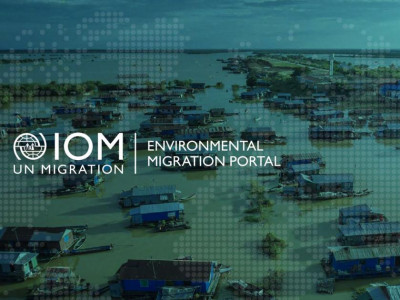Strengthening Socio-economic Policy Responses to the COVID-19 Pandemic for Key Populations Including Migrants in Uganda
IOM Uganda: Victoria Kajja, Migration Health Coordinator (vkajja@iom.int)
UNDP Uganda: Francesca Akello, PSSR Team Leader (francesca.akello@undp.org)
Related Sustainable Development Goals and Global Compact for Migration Objectives
Summary
Uganda registered its first case of COVID-19 on 21st March 2020. As of September 2021, the country had 123,572 confirmed cases and over 3,156 deaths. The Government of Uganda’s (GoU) response to the health crisis and its related socio-economic impacts involved a series of mitigation and response measures including the development of a national response plan and the institution of countrywide lockdowns aimed at reducing importation, transmission, morbidity, and mortality. Despite these responses, the pandemic has increased the socio-economic vulnerability of communities and left some populations, such as migrants and refugees living in remote or rural districts of the country, out of reach of the response and recovery measures.
Key objective
Through this Joint Action, IOM and UNDP aimed to assess Uganda’s social-economic response to the pandemic, particularly for key populations such migrants and refugees, in order to support the GoU to conduct a review and strengthen its COVID-19 response and recovery policies.
Main activities
IOM and UNDP implemented the following activities:
-
A joint and participatory baseline and on-site assessment in the Amuru and Adjumani districts, to determine the level of vulnerability and the socio-economic impact of COVID-19 on select populations including refugees and migrants. The assessment culminated in an analysis report which details the gaps in the response to COVID-19 in various sectors, such as protection, education, health, social cohesion and coexistence between migrants, refugees and host communities. The report also:
-
Provides recommendations to strengthen the local health system to provide more services,
-
Calls for easier access to protection, basic services, social protection and humanitarian assistance,
-
Encourages a stronger economic response, and
-
Requests more resources to be allocated to districts hosting refugees to strengthen social cohesion and community resilience.
-
-
Following the baseline assessment, a policy review dialogue took place with stakeholders from various national and subnational levels including at both the district and central levels, and convening various ministries, departments and agencies. This multistakeholder, whole-of-government review evaluated the country’s response to the COVID-19 pandemic and identified existing key programming and policy gaps. This dialogue provided a platform for the various stakeholders to agree on the priority policy issues and to review and amplify the need to address the socio-economic needs of migrants and vulnerable communities.
Key successes or innovative factors, good practices and lessons learned (if available)
The implementation of the Joint Action was successful as it shed light on the gaps that must be filled in order to respond to the COVID-19 pandemic's effects in a way that leaves no one behind. Key learnings will be used to design a more specific joint programme to improve the well-being of migrants and host communities. IOM and UNDP aim to scale up the initiative, conduct advocacy and mobilize resources for key proposed issues such as the revision of the policy to strengthen cohesion between the refugees and the host communities and to collect more evidence to support policymaking and improve existing policies on Internally Displaced People (IDP), refugees and host communities.
A joint approach such as this one is integral to achieving the SDGs, more specifically contributing to SDG 1 on no poverty, SDG 3 on good health and well-being, SDG 10 on reducing inequalities and SDG 17 on partnerships. It also contributes to achieving the Global Compact for Migration's objectives, such as GCM objective 1 on collecting and utilizing accurate and disaggregated data as a basis for evidence-based policies, GCM objective 7 on addressing and reducing vulnerabilities and GCM objective 16 on empowering migrants and societies to realize full inclusion and social cohesion.
Beneficiaries
Migrants, refugees, local authorities, national authorities

